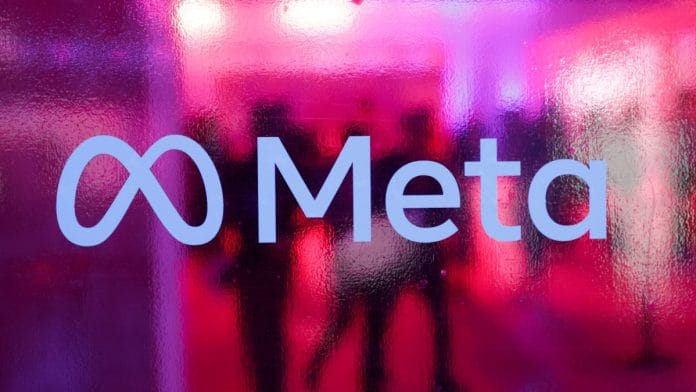New Delhi: The NCLAT (National Company Law Appellate Tribunal) Tuesday granted partial relief to Meta and WhatsApp by staying a portion of a CCI (Competition Commission Of India) order from last year. The competition regulator had concluded its investigation on 18 November 2024. It then imposed a penalty of Rs 213.14 crore on Meta. It also mandated behavioural remedies including a five-year data sharing ban for advertising purposes.
In its order Tuesday, the NCLAT stayed the data sharing ban, while upholding the penalty.
This order was a culmination of a four-year tussle.
On 4 November 2025, an NCLAT bench, comprising Chairperson Justice Ashok Bhushan and Member Arun Baroka, noted that WhatsApp and Meta are distinct legal entities. In saying so, they set aside the CCI directive which restrained data sharing between the two entities.
The bench also observed that Meta’s leading position in the digital advertising market has created a situation of market denial, violating section 4(2)(c) of the Competition Act, 2002. However, it noted that CCI findings could not establish Meta leveraged dominance in one market (OTT messaging) to extend dominance in another (online display advertising).
WhatsApp’s 2021 privacy policy
The sequence of events can be traced back to March of 2021, when CCI initiated a probe into WhatsApp’s 2021 privacy policy update which unilaterally dictated terms to its users by floating a “take it or leave it” approach, mandating sharing of data across all the information categories with other Meta (then Facebook) companies.
This was in contrast to a 2016 privacy update which gave users the option to opt-in unlike the compulsory sign-on this time around.
The CCI, taking note of the above, highlighted possible misuse of this provision to undermine competition through exploitative and exclusionary conduct.
Meta, thereafter, filed a writ petition in the Delhi High Court, arguing that in light of the Supreme Court’s decision in the Bharti Airtel case, CCI was overstepping its jurisdiction. In April 2021, the high court dismissed their appeal on the grounds that there might be some overlaps but nothing inviolable which would divest CCI of its jurisdiction.
In May that year, WhatsApp and Meta appealed the single-judge decision before a division bench of the Delhi HC. The bench dismissed the appeal in August, noting that CCI looks at company conduct through the lens of competition law and its jurisdiction is not ousted simply because some other court is assessing the same facts on different aspects of the law.
Meta, which owns WhatsApp, then appealed the high court’s decision by filing special leave petitions (SLPs) in the Supreme Court in October 2022, which affirmed the CCI’s jurisdiction to consider any violation under the Competitions Act and investigate.
CCI acts, matter reaches NCLAT
The commission took definitive action on 18 November 2024 against Meta and WhatsApp, penalizing Meta Rs 213.14 crore for abusing its dominant market position. It found that the 2021 privacy policy update was unfair, leveraging the company’s power to suppress competition and undermine user privacy. As part of the remedies, CCI put constraints on WhatsApp from sharing data with other Meta companies.
It also instructed WhatsApp to provide users with a mandatory option to opt out of certain data sharing arrangements with other Meta entities.
WhatsApp and Meta appealed the order to the NCLAT which, in January this year, initially stayed the five-year data sharing while upholding the penalty, directing Meta to deposit 50 percent of the fine.
Both entities had challenged the order to NCLAT on several counts, with Meta’s lawyers taking the lead in confronting CCI’s order, accusing it of resting on “seven misses”.
According to senior advocate Amit Sibal, representing Meta, the case was triggered by misinformation that WhatsApp would lose end-to-end encryption.
He said the 2021 privacy policy did not expand but only clarified the existing framework of the 2016 update, which the courts had already upheld. The counsel highlighted that the commission misunderstood the opt-out mechanism and that data sharing was done only in limited and optional cases, while criticizing CCI for failing to consult the end user or advertiser and to provide concrete evidence of harming rivals.
He also alleged that CCI skipped steps to prove market dominance, relying on speculative future harms. Remedies ordered by CCI were termed a “misadventure” by the counsel, which cried foul about the imposition of disproportionate restrictions minus the respective justifications.
Meta claimed that its competitive edge was unfairly exaggerated because location and behavioural signals can be inferred in several different ways; and that the burden of the fine should solely rest on WhatsApp, which operates as a separate legal entity from Meta.
What NCLAT order said
In its 184-page judgement, NCLAT upheld the Rs 213.14 crore penalty on Meta, finding no fault whatsoever in the calculation methodology.
“We have determined earlier that it is WhatsApp alone, which is dominant in the relevant market of OTT messaging apps through smartphones in India and is also found to have abused its dominant position and violated Section 4(2)(a)(i) of the Act. Thus, imposition of penalty on WhatsApp is wholly justified,” the order stated.
It yet to be seen if CCI or Meta will appeal against portions of the order that were stayed. An appeal can be filed in the Supreme Court within forty-five days from the date of receipt of the order, with a possible extension of fifteen days in-case of sufficient cause.
ThePrint reached both CCI and Meta for comment via email but had not received a response by the time of publication. This report will be updated if a response is received.
Tejas Bhatotia is an alum of ThePrint School of Journalism, currently interning with ThePrint
(Edited by Amrtansh Arora)
Also Read: Winzo-Google dispute shows India’s digital policy gaps. It’s beyond CCI’s jurisdiction






